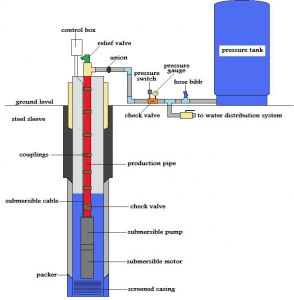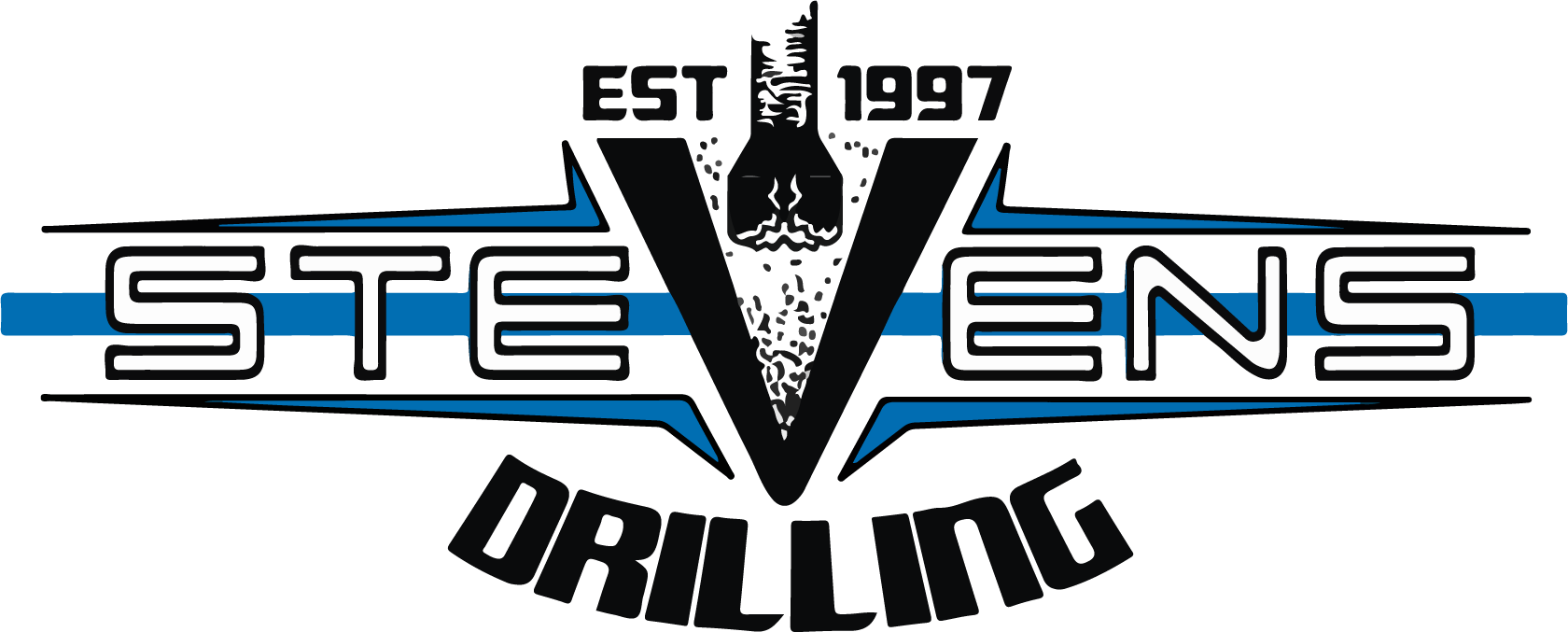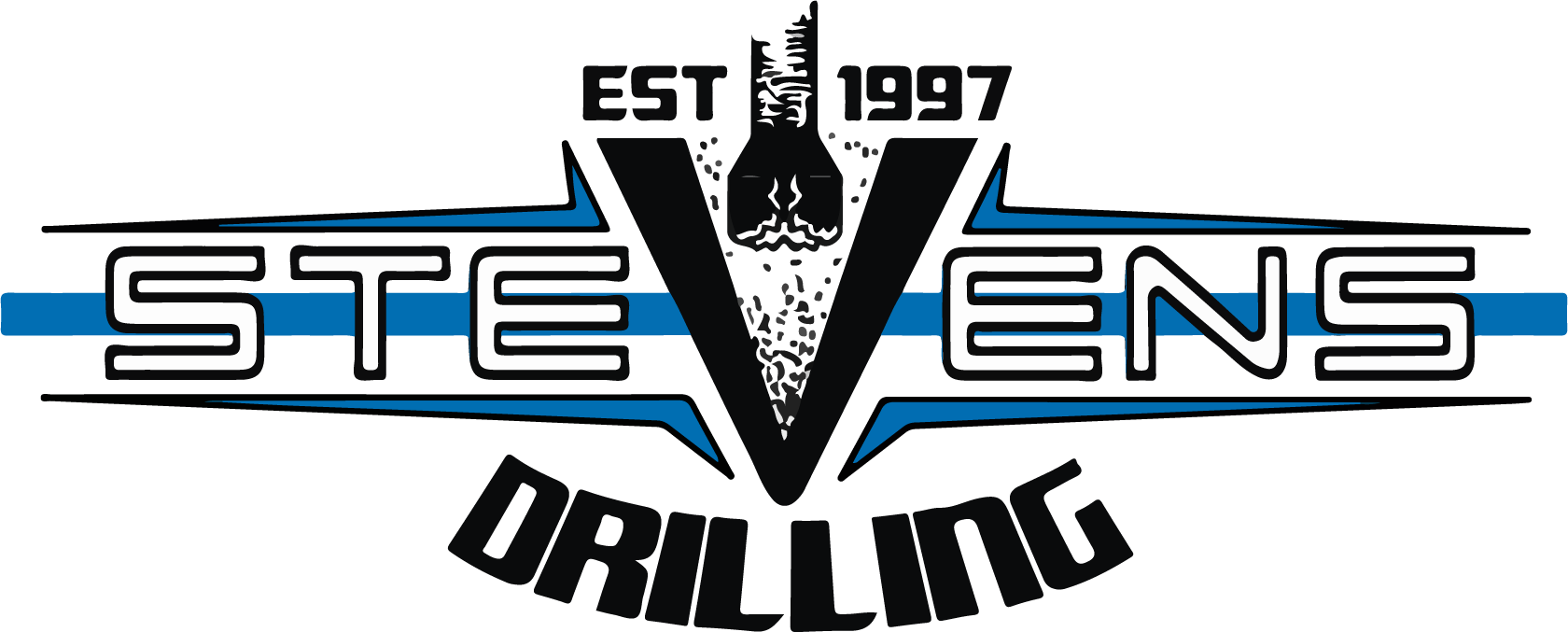SERVICES
For our homeowners that want a “do it all” water well for their home and yard, we offer a 4.5” (inside diameter) cased well for optimum clearance for your pump and down hole equipment as well as providing enough clearance in the borehole to give our gravel plenty of room to help hold back sand from entering the well. The process starts with our office staff getting all the details from you to make sure we get exactly what you want and sending over a free estimate. If you like what you see and want to proceed, we will send one of our drillers to meet with you and discuss our contracts and work out any fine details we may have missed in the estimate ie: power run, well placement. We will provide a basic pumping estimate based on the well logs in your area and once the well is complete and we have all our information such as pumping levels and production rate we will get with you and design a water system to fit your exact needs! We offer several different options to help with water quality such as storage tanks and whole home filtration systems. We work hard to achieve solid well construction and a quality experience throughout the process.
The basic (Standard Pressure) residential water well system is a system that has been proven over many generations.
The submersible pump pushes water up through the drop pipe to the surface. There is a check valve installed every 200’ that keeps the water from flowing back into the well. The pressure switch turns the pump on when the pressure drops and off when the pressure builds up again. This typically happens over a 20PSI range.

The pressure is then stored in an above-ground pressure tank. If the system builds up too much pressure, the pressure relief valve will release the excess pressure to prevent the submersible pump or PVC drop pipe from being damaged. Below is a basic diagram of this setup.
This is a system that can be installed on almost any water well, it has been tested for many years and works great. However, that doesn’t mean that the system doesn’t have its drawbacks. One of the main flaws to a Standard Pressure System is that the submersible pump turns on and off as the pressure in the pressure tank rises and falls every 20PSI.
During high water usage times, such as showers or lawn irrigation this results in a high number of pump starts and stops. These hard starts/stops is what shortens the lifespan of your downhole pump. Submersible pumps are rated for 20,000 starts and stops so the more we can minimize the pump kicking on and off the greater the lifespan of your pump.
This can be problematic for those customers who are looking to use their water well for lawn irrigation. Most sprinkler systems require a solid 60PSI to efficiently water the yard, so the 20PSI pressure range can be frustrating or even problematic since the sprinklers will throw farther/shorter as the pressure rises/falls. This could result in dry/brown spots in your lawn.
A solution for these problems can be a Constant Pressure System that operates off of a variable speed drive.
New VFD technology has caught up to the water well world! VFD (variable frequency drive) motors allow the pumps to run at different speeds to keep a constant pressure for your home and yard no matter how little or large the demand is. We install VFD submersible and booster pumps to fit your pumping system. They are great for sprinkle systems that have different zones with varying water volume demands. VFDs are also great for homes with large water demands. The pumps can keep a constant 60 psi no matter if your washing your hands in your sink or running several things at once!
Storage tanks are great additions to any water well, especially if your using your water well for your home.
Storage tanks help alleviate sulphur (rotten egg smell) by releasing the sulphur gas as it pumps into the tank. We install a spray bar from the well into the storage tank to help oxidize iron and release the sulphur gas. In our experience storage tanks can reduce iron content by more than half and in some cases the iron is depleted completely from the well water.
We install an electric float switch that will automatically fill your storage tank when it drops 2-300 gallons. Storage tanks also drastically improve the life of your down hole submersible pump as it only starts a few times a day to fill the tank. Booster pumps are used to pull the water from 2 feet above the bottom of the tank. This helps you get the cleanest water possible as any sand will fall to the bottom. We install a bottom Drain so the tank can be cleaned if necessary. The booster pumps we offer have a wide range of flow and pressure that we can Taylor to your exact needs.
 A photovoltaic solar powered pump system has three parts:
–solar panels
–the controller
–the pump
The solar panels make up most (up to 80%) of the systems cost. The size of the PV-system is directly dependent on the size of the pump, the amount of water that is required (m³/d) and the solar irradiance available.
The purpose of the controller is twofold. Firstly, it matches the output power that the pump receives with the input power available from the solar panels. Secondly, a controller usually provides a low voltage protection, whereby the system is switched off, if the voltage is too low or too high for the operating voltage range of the pump. This increases the lifetime of the pump thus reducing the need for maintenance. Other ancillary functions include automatically shutting down the system when water source level is low or when the storage tank is full, regulating water output pressure, blending power input between the solar panels and an alternate power source such as the grid or a petrol generator, and remotely monitoring and managing the system through an online portal offered as a cloud service by the manufacturer.
Voltage of the solar pump motors can be AC (alternating current) or DC (direct current). Direct current motors are used for small to medium applications up to about 4 kW rating, and are suitable for applications such as garden fountains, landscaping, drinking water for livestock, or small irrigation projects. Since DC systems tend to have overall higher efficiency levels than AC pumps of a similar size, the costs are reduced as smaller solar panels can be used.
Finally, if an alternating current solar pump is used, an inverter is necessary that changes the direct current from the solar panels into alternating current for the pump. The supported power range of inverters extends from 0.15 to 55 kW and can be used for larger irrigation systems. However, the panel and inverters must be sized accordingly to accommodate the inrush characteristic of an AC motor. To aid in proper sizing, leading manufacturers provide proprietary sizing software tested by third party certifying companies. The sizing software may include the projected monthly water output which varies due to seasonal change in insolation.
Solar powered water pumps can deliver drinking water as well as water for livestock or irrigation purposes. Solar water pumps may be especially useful in small scale or community based irrigation, as large scale irrigation requires large volumes of water that in turn require a large solar PV array.As the water may only be required during some parts of the year, a large PV array would provide excess energy that is not necessarily required, thus making the system inefficient.
A photovoltaic solar powered pump system has three parts:
–solar panels
–the controller
–the pump
The solar panels make up most (up to 80%) of the systems cost. The size of the PV-system is directly dependent on the size of the pump, the amount of water that is required (m³/d) and the solar irradiance available.
The purpose of the controller is twofold. Firstly, it matches the output power that the pump receives with the input power available from the solar panels. Secondly, a controller usually provides a low voltage protection, whereby the system is switched off, if the voltage is too low or too high for the operating voltage range of the pump. This increases the lifetime of the pump thus reducing the need for maintenance. Other ancillary functions include automatically shutting down the system when water source level is low or when the storage tank is full, regulating water output pressure, blending power input between the solar panels and an alternate power source such as the grid or a petrol generator, and remotely monitoring and managing the system through an online portal offered as a cloud service by the manufacturer.
Voltage of the solar pump motors can be AC (alternating current) or DC (direct current). Direct current motors are used for small to medium applications up to about 4 kW rating, and are suitable for applications such as garden fountains, landscaping, drinking water for livestock, or small irrigation projects. Since DC systems tend to have overall higher efficiency levels than AC pumps of a similar size, the costs are reduced as smaller solar panels can be used.
Finally, if an alternating current solar pump is used, an inverter is necessary that changes the direct current from the solar panels into alternating current for the pump. The supported power range of inverters extends from 0.15 to 55 kW and can be used for larger irrigation systems. However, the panel and inverters must be sized accordingly to accommodate the inrush characteristic of an AC motor. To aid in proper sizing, leading manufacturers provide proprietary sizing software tested by third party certifying companies. The sizing software may include the projected monthly water output which varies due to seasonal change in insolation.
Solar powered water pumps can deliver drinking water as well as water for livestock or irrigation purposes. Solar water pumps may be especially useful in small scale or community based irrigation, as large scale irrigation requires large volumes of water that in turn require a large solar PV array.As the water may only be required during some parts of the year, a large PV array would provide excess energy that is not necessarily required, thus making the system inefficient.Improved quality of water
— By allowing the water to settle, any solids in the water will drop to the bottom of the tank.
— As the water is pumped into the storage tank it allows air to mix into the water. When this happens, a chemical reaction occurs and oxidizes any iron particles that are in the water. The iron particles turn into a solid and then drop out of the water.
— Well water tends to have a lot of dissolved sulfur gas in it that will give your water a “rotten egg” smell. A storage tank allows that gas to be vented out of the water, instead of being pumped into your home.
Improved longevity of downhole equipment
— Starts and stops are very hard on your submersible pump and motor. By installing a storage tank the downhole equipment will start and stop 75% less than the conventional setup. In theory, this system should double or even triple the life of an average pump.
Ability to install a smaller horsepower submersible pump and motor
— Since you are pumping water into a zero pressure storage tank, you are able to go with a smaller horsepower pump in the well. Smaller pumps are cheaper to replace and generally last longer.
 Water is never perfect when it come out of the ground so we have many options to help with making your water as close to perfect as possible. We offer water testing for inorganic materials such as TDS (total dissolved solids),
PH, Hardness, and iron. We can come out and test your water to see exactly what you need to help your water quality. Every well is different and so is its water quality. We offer softeners, iron filters, particulate filters and UV (ultra-violent) filters to meet your needs from your water well. The most common is hard water and iron. Hard water produces build up on fixtures, ice machines, and showers. Iron produces the orange stain on the toilets, showers and sinks. Call us today to schedule your wells water test and a quote for your custom filtration system!
Water is never perfect when it come out of the ground so we have many options to help with making your water as close to perfect as possible. We offer water testing for inorganic materials such as TDS (total dissolved solids),
PH, Hardness, and iron. We can come out and test your water to see exactly what you need to help your water quality. Every well is different and so is its water quality. We offer softeners, iron filters, particulate filters and UV (ultra-violent) filters to meet your needs from your water well. The most common is hard water and iron. Hard water produces build up on fixtures, ice machines, and showers. Iron produces the orange stain on the toilets, showers and sinks. Call us today to schedule your wells water test and a quote for your custom filtration system!From installations to repairs, we can help you with all your well pump needs. Depending on the type of pump, some well pumps simply deliver water from the well to a pressure tank, while others will pressurize the entire water system. Dialing in the specific well type and capacity is a critical step in getting the most use out of your well. Our experts can help you size the right pump for a new well or assess your current pump if it is not meeting your needs. We’ll also fix water line leaks and troubleshoot problems if needed.
Routine inspection of a water well system can help ensure it is operating properly,
prolong its useful life, and protect your investment. Most importantly, inspections
can protect your health by discovering issues that could result in water quality
problems presenting a health risk.
Wells should be evaluated annually by a licensed or certified water well systems
professional. In between annual inspections, well owners should look for signs that a
professional should be called sooner.

